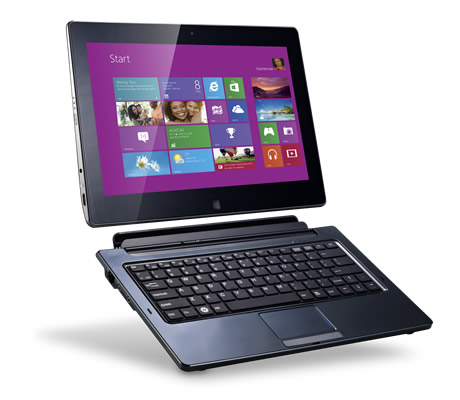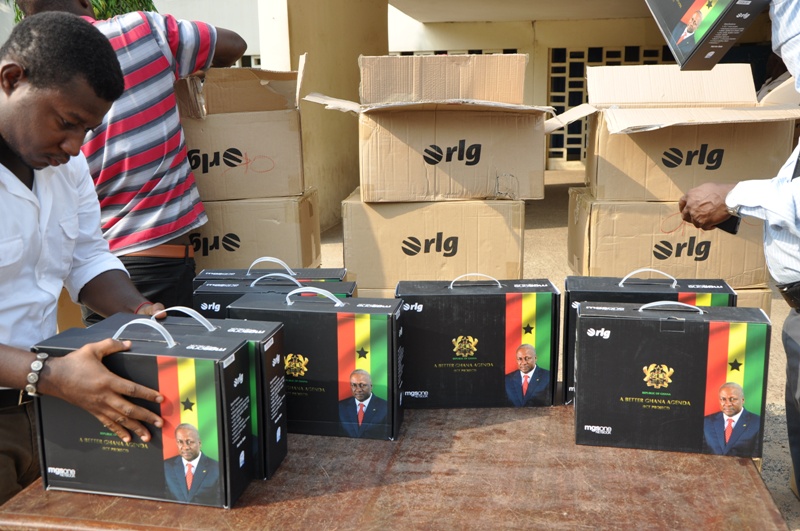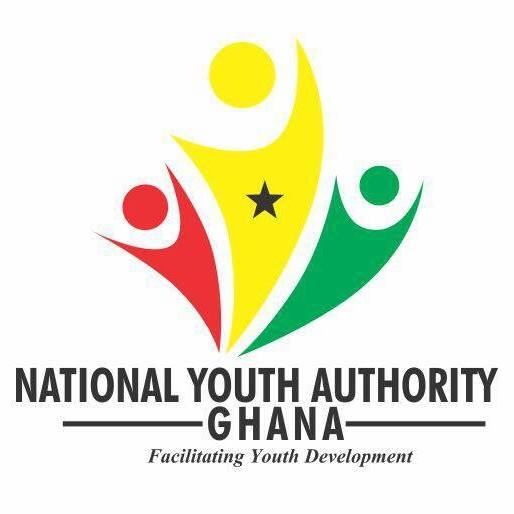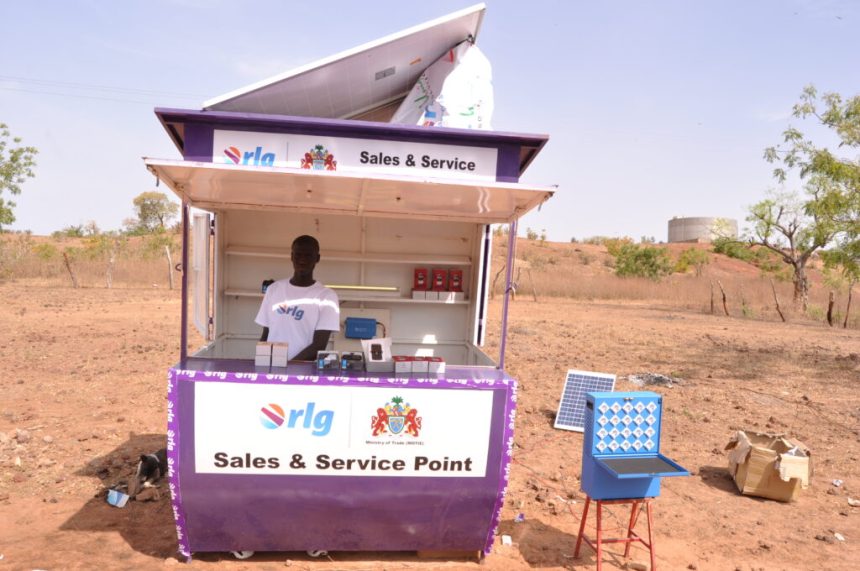In 2010, a small ICT company founded by a businessman named Roland Agambire was on the come up and would soon grow to become a shining example of entrepreneurship and locally made ICT products in Ghana and other African countries.
But along the way, the company stumbled and got entangled in a lot of controversies which resulted in the closure of their offices in Accra and the relocation of their CEO, whose whereabouts are currently unknown.
Whether it was their involvement in politics or their overly ambitious and diverse plans, one thing is for certain: RLG Communications had great ambitions and its demise led to a lot of job losses and painful lessons learned.
So, what exactly happened to the RLG?
Early Beginnings And Rapid Rise
RLG Communications was founded in 2001 by Roland Agambire. The company started off as a mobile phone repair outlet and later grew into a prospering company that started assembling, laptops, desktops, and mobile phones. The company soon also engaged in ICT training in computers and phone repairs.
In 2012, RLG was ranked the second-best company in Ghana by the Ghana Investment Promotion Centre (GIPC)…
The company later expanded to other countries including China, Dubai, UAE, Nigeria, Angola, Kenya, the Gambia, South Africa, and Rwanda.
Manufacturing Of Phones
RLG ventured in manufacturing of phones in 2010 with the official launch of their G-Series mobile phones.
In 2013, the company went on to manufacture new mobile phones including the Viva and Fusion android devices. The devices ran the Android 4.0 OS, had dual SIMs as well as 3G and WiFi functionality. The devices were launched in West Africa including The Gambia and Nigeria.
Partnership With Microsoft
In 2012, RLG had a partnership with Microsoft to supply RLG laptops (The MSG1 Laptop) with genuine copies of the Microsoft Windows 8 Operating System. The RLG laptops would come with in-built modems that require only a SIM card to browse.
The company also manufactured the Uhuru laptop in 2013. The Uhuru laptops were 3G enabled and ran on the Windows 8 operating system. The laptops also had a detachable dock with a second battery, USB ports, microphone, headphone, and DC jack.

Government Contracts Including School Laptops And Digital Set-Top Boxes
In 2010, RLG was contracted by the Ghana government to manufacture and distribute 100,000+ laptops to schools across the country.
It all seemed to be going well for RLG as they got a lot of recognition and were considered for multiple projects in Ghana and other West African countries. Then the controversies started to pile up….
Later on, in steps to prepare for the digital television migration, RLG was contracted by the government in 2017 to manufacture digital set-top boxes.
The company was expected to produce 60,000 set-top boxes for the Ministry of Communications. The project was estimated to create 5,000 jobs directly and create another 5,000 auxiliary jobs.
The deal was approved after RLG had also been contracted to help supply digital set boxes in Nigeria.
The Hope City Project

In 2015, RLG undertook probably their biggest project: The “Hope City” project. Hope City was a planned technology park to be built at Prampram in the Greater Accra Region. The project was expected to be completed in three years and was estimated to cost $10 billion. The project was to be done in collaboration with the Government of Ghana.
Awards And Commendations
Throughout the years, RLG won several local and international recognitions and awards for its innovation, entrepreneurship, commitment to growth and philanthropy. Their CEO in 2012 became the youngest person to be awarded the Chartered Institute of Marketing Ghana (CIMG) Marketing Man of the Year for 2011. Their RLG Phones were also adjudged product of the year in 2011.
In 2012, RLG was ranked the second-best company in Ghana by the Ghana Investment Promotion Centre (GIPC). The company and CEO also racked up other awards including Most Influential Ghanaian for the year (2012), Finalist for 2012 Africa Awards for Entrepreneurship, and Ernst and Young West Africa 2011 Entrepreneur of the Year Award.
Then The Controversies Started To Pile Up….
It all seemed to be going well for RLG as they got a lot of recognition and were considered for multiple projects in Ghana and other West African countries. Then the controversies started to pile up. Here’s a couple of controversies that the company went through:
School Laptops
In 2017, RLG was embroiled in a controversy when the Ministry of Environment, Science and Technology took steps to retrieve an amount of GH¢6.3 million from the company after they failed to supply over 12,000 laptops to the state.

The company had been contracted in 2010 by the government to supply 103,181 laptops for the state. But according to a report by the auditor general, the company had only supplied 90,448. The company was reportedly paid GH¢51,257,500 for the supply of the laptops.
National Youth Agency
RLG had been contracted to train 15,000 youth but according to an auditor general’s report, the company only trained 4222 youth. The company was also said to have received funds to train youth in smock making and guinea fowl rearing but had failed to set up any training. The company was reportedly paid GHC 25.5 Million for the training programme.

The company was ordered to repay the funds by the Auditor General, which also cited the Youth Agency with poor corporate governance practices, inadequate financial oversight, and other irregularities.
Savannah Accelerated Development Authority
RLG was at the center of another controversy with the Savannah Accelerated Development Authority. A board chairman of the Savanna Accelerated Development Authority (SADA), Alhassan Andani was said to have a conflict of interest when he used his Managing Director position at Stanbic to divert GHC 75 million of SADA money into his account at his own personal bank.
The real controversy was that Mr. Alhassan Andani was reportedly also the Board Chair of the RLG Foundation when he allegedly diverted some of the SADA activities to the AGAMs Group of companies of which RLG was the flagship company.
Tax Dodging
In 2017, the RLG CEO was in controversy for reportedly failing to pay taxes worth GHC 14 million to the Ghana Revenue Authority. The Authority had tried to reach the CEO but was unable to contact him. It was also reported that one of his subsidiary companies, ACI Construction Company Limited, had defaulted a tune of GHC14,312,974.19 within a period of one year.
Hope City
The Hope City project eventually became a white elephant. Two years after the announcement of the project, work had yet to be done on the construction of the project. Many said the result of “dumsor” or low energy supply which affected the economy, was a factor for the stalled project. But now, the project appears to have been fully abandoned.
Where Is RLG Now?
There are many factors to choose when debating why RLG was once a shining example of Ghanaian ingenuity, had failed down the line. One factor could have been its involvement with government projects including the Ghana Youth Employment and as well as the Savannah Accelerated Development Authority.
There were critics who spoke about the “Made In Ghana” phones and laptops from RLG. It was reported that 90 percent of the hardware’s components were manufactured in Asia and shipped to Ghana for local assembly. But that could be debated.
But one reason for the company’s demise could be its lack of focus. The company choosing to engage in ambitious projects like “Hope City” should have raised red flags given that the company was more into manufacturing and ICT training.
At the moment, mostly all RLG offices have been closed down. The whereabouts of the Roland Agambire are currently unknown. Only insiders would probably know what really happened to RLG.
Their story might be like the one of Icarus: They probably flew too close to the sun and suffered the consequences.










